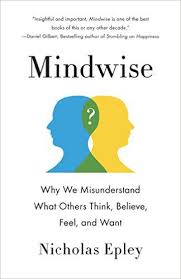

What's New

Words of Wisdom
52
cards and 15 activities to spark conversations and make sense of learning.
Learn more HERE.
What We Do
The Firefly Group helps people make sense of what they learn and experience.
Whether facilitating a group for better decision-making, keynoting a conference, leading a training, or writing an instructional design, we use novel methods that engage, spark creativity, and produce memorable results.
 If
this sounds like a good direction for your organization, let's talk about
how we might collaborate! Please give me a call (802.257.7247) or send an
. - Brian
If
this sounds like a good direction for your organization, let's talk about
how we might collaborate! Please give me a call (802.257.7247) or send an
. - Brian
 Your ETR (Estimated Time to Read): 10 minutes Your ETII (Estimated Time to Implement Ideas): 5 weeks |
The best learning event of the year for trainers, facilitators, and instructional designers!
North American Simulation and
Gaming Association Conference
Meet
me at Gamification Buzz
Seattle,
Washington
October 21-24, 2015
October 2015
|
Say
It Quick |
Discoveries bits of serendipity to inspire and motivate |
Ideas fuel for your own continuous learning |
Activities tips and tricks you can try today |
| Left Out Cold | Mindwise | Practice Mind Reading Skills |
Sometimes we can guess what others think. But we aren't as competent at this as we think we are. Find out why beginning with this story in just 99 words.
Left Out Cold
Once when Diane was at the grocery store she noticed a man in a wheelchair struggling to reach the items in the frozen food section. The door of the freezer and the height of the shelves made grasping things too difficult. She offered to help and retrieved several packages for him.As she continued with her shopping, another customer stopped Diane with this comment, "I passed that fellow twice and never thought to ask if he needed help."
It's easy to be preoccupied with our own "shopping list" and be oblivious to the needs of others.
 Mindwise:
Why We Misunderstand What Others Think, Believe, Feel, and Want
Mindwise:
Why We Misunderstand What Others Think, Believe, Feel, and Want
By Nicholas Epley
Having read Nicholas Epley's book Mindwise, I now have a more nuanced understanding of the 99-Word Story, "Left Out Cold."
Yes, we can easily be so focused on our own needs that we miss the opportunity to help another person with what they need. But what we don't know in this story is what the man in the wheelchair was doing or not doing to signal that he needed assistance. Neither do we know whether the woman who did not help saw these signals nor how she understood and interpreted them if she did.
Epley shares a similar story with more dire consequences. A man died of a heart attack in a crowded retail store on the busiest shopping day of the year. Our first impression is that callous bystanders ignored him in their bargain-hunting race. But Epley points out that, when many people are present in an emergency, we are more likely to think that someone else will provide aid.
We think we know what other people are thinking but, in fact, we often overestimate our ability to read minds. And that is a major point of Mindwise.
Epley describes some surprising ways our minds can be highly accurate in knowing what other people think. For example, we can easily and accurately describe the views of people who are politically liberal, estimate how many students on our college campus drink too much, or know our own social status in our team at work.
But Epley also highlights the limitations of our mind reading abilities. We can't assume we know the political views of a specific liberal, we can't "read" which college students drink too much, and we can't be sure people will give us specific, honest feedback if we ask for it.
Mindwise details many problems we can encounter as we try to read the social scenery:
Knowing Ourselves - We make conclusions about other's actions but we don't know the full process we used to arrive at those conclusions. Much of our sensory data is collected, mixed with memories and emotions, and processed unconsciously. We don't know our own minds as well as we believe we do.
Actions and Ideas - Actions may speak louder than words but they don't necessarily tell us what is going on in a person's mind. Most of the people stranded in New Orleans after hurricane Katrina, for example, stayed in their homes because they either never heard the warnings or had no transportation. Yet we are quick to assume everyone stubbornly refused to leave.
Human and Not Human - We create enemies by viewing the world of others through our own narrow lens and expecting others to see the world the same way. The less others share our perspective, the less human we assume they are. In contrast, we routinely bestow human qualities on machines, animals, the weather, and other objects that clearly do not share our emotions and thought processes. Anthropomorphizing, giving a mind to the unhuman, enables us to explain unpredictable actions because a mind is what makes sense of action.
Using and Misusing Stereotypes - We are good at extracting, summarizing, and averaging data about groups but make mistakes when applying that averaged data to individuals. "Stereotypes exaggerate the differences between groups that are defined by their differences, a mistake enhanced by considering the other side's perspective." You can put yourself in the shoes of another to see their perspective but you still don't know whether you are seeing their situation accurately.
Epley consistently talks about our "mind reading" ability as a sixth sense that can be useful but that can also trip us up. Ultimately, he concludes, knowing another person's mind is a matter of "asking and listening not just reading and guessing."
Resources: Mindwise: Why We Misunderstand What Others Think, Believe, Feel, and Want By Nicholas Epley, Vintage Books, Random House, New York, © 2014, ISBN: 978-0-307-74356-5.
 Get
Over Yourself!
Get
Over Yourself!
A few weeks ago, I decided to buy a bike for use when I visit my father-in-law
in California. Since I am never there more than 10 days at a time, I didn't
want to spend a lot. Something used would be fine.
And I didn't care what it looked like - until I saw it! The only used bike in my size was a pale, baby blue with a silly-looking carry pouch on the handle bars adorned with a childish cartoon figure. It did not say, "The rider of this bike is a serious, manly athlete able to climb the hills of San Francisco."
But I still bought the bike; sold on its quality mechanics and deciding I would ignore what people might say about the color. I figured the cartoon character would keep me humble.
My sensory data about the bike was combined with my emotions, history, experience, and sense of self to generate my negative evaluation of this bicycle. That's my perceptual lens that I'm not even fully aware of.
But here's the
kicker that Epley's book brings to light: I expect that everyone else will
evaluate the bike - and by extension me - in exactly the same way! I think
baby blue is not very masculine; so do you. I think the lion is cartoonish
and childish and so do you. I would judge a person who rides this bike as
unmanly and you would too. Am I right? 
It's nearly impossible to escape the restrictions of my own internal lens. Yet it's certain that no one else will share exactly my same perspective with the same intensity. I cannot know what you think about the bike - or me - without asking. Even then, you may not tell me truthfully.
Because of this misalignment of perspectives, Epley is able to point out that most people never notice the things we worry about most. In one experiment, subjects were required to wear a Barry Manilow T-shirt when joining a new group. Most were very self-conscious about the judgements that would be made about them. But people in the group were not even able to remember what the subject was wearing.
Clearly, it's far too easy to attribute a perspective to others that they could never hold. The good news is that you can become a more relaxed public speaker, a more effective team contributor, or a more thoughtful partner and parent when you remember the limits of your mind reading abilities and just get over yourself.
Practice Mind
Reading Skills
Here's a simple way to demonstrate the trap we can fall into when we forget
the uniqueness of our own perspective. Use it to encourage critical thinking
for managers who delegate tasks, team leaders who coordinate projects, subject
matter experts who teach, and anyone who communicates their knowledge to others.
This activity is based on the research of Elizabeth Newton and the illusion of transparency, which is the tendency to overestimate the degree to which others know what we are thinking.
Read My Mind
Group size: Any number in pairs
Time: 15 minutes
Materials: A list of 6 to 8 commonly-known songsProcedure: Ask people to choose a partner and designate one person as the "Tapper" and one as the "Listener". Post a short list of common songs that most people would know. Here are some suggestions:
Row, Row, Row Your Boat
Happy Birthday
The Star Spangled Banner
Lullaby and Good Night
America the Beautiful
Rock Around the ClockThe task of the Tapper is to tap out the rhythm of a song for the Listener (on a table top or with a pencil on the back of the Listener's hand). The task of the Listener is to guess the song being tapped to them.
Ask the Tappers to privately decide which song they will tap. Have them write a number from one to five to indicate how likely the Listener will be able to guess their song. Write "one" if the Listener is not likely to guess correctly; write "five" if the Listener is sure to guess correctly.
Ask Tappers to tap out at least three songs. Have them begin. When people are finished, lead a discussion using some of the following questions:
Discussion:
- What was it like to be a Tapper? How accurate were your predictions?
- As a Tapper, what did you think when the Listener guessed wrong?
- What was it like to be a Listener?
- How can you explain that Listeners had so much difficulty identifying common melodies?
- In what types of situations do we act like Tappers and what is the result?
- Explain the illusion of transparency, then ask: Why do we fall victim to this illusion?
- What situations would be especially problematic if we are caught in the illusion of transparency?
- What are some strategies for overcoming the illusion of transparency?
If you try this activity with your team, or in your family, please what happened and what you learned.
You can learn more about Elizabeth Newton's tapping study and the illusion of transparency at the links below.
Harvard Business Review
An excerpt from Made to Stick by Chip and Dan Heath
You Are Not So Smart, blog by David McRaney
|
Whether you need a keynote speaker, or help with strategic planning, performance improvement, or training facilitators and trainers in your organization, I look forward to your call (802.257.7247) or . -- Brian |
Read previous
issues. Click Library!
To add or delete your name to our mailing list, email
with a short note in the subject line.
I want this newsletter to be practical, succinct, and thoughtful. If you have suggestions about how I can meet these criteria, please let me know! Send me an with your thoughts and ideas.
Home
| Services | Products
| Mission | Ideas
| The Group | The
Buzz
(c)
2015 The Firefly Group